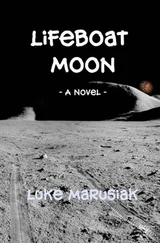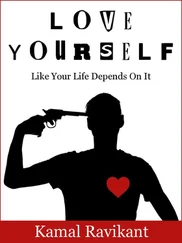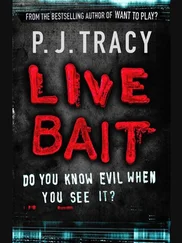Less than a minute later two black men ran past the lot. Spotting Buddha, one shouted, “See a kid come this way?” Buddha made no reply.
“Tell ‘em I headed toward Cass,” the kid whispered urgently, but Buddha maintained his silence, his lack of concern.
“Y’hear me?” the man shouted.
“Tell ‘em!” the boy whispered.
Buddha said nothing.
The two men conferred and after a second ran back in the direction from which they had come. “Damn, blood! You take some chances!” said the boy, and when Buddha gave no response, he added, “They come back, you just sit there like you done. Maybe they think you a dummy.” He switched on the ghetto blaster, and rap music leaked out, the volume too low for the words to be audible.
Buddha looked at the boy, and the boy grinned, his nervousness evident despite the mask of confidence.
“Ain’t this a fine box?” he said. “Fools leave it settin’ on the stoop, they deserve to get it took. “ He squinted as if trying to scry out Buddha’s hidden meaning. “Can’t you talk, man?”
“Nothin’ to say,” Buddha answered.
“That’s cool… Too much bullshit in the air, anyhow.”
The boy reminded Buddha of his younger self, and this disquieted him: he had the urge to offer advice, and he knew advice would be useless. The boy’s fate was spelled out by the anger lying dormant in the set of his mouth. Buddha pitied him, but pity-like love, like hate-was a violation of his policy of noninvolvement, an impediment of the emptiness to which he aspired. He got to his feet and headed for the sidewalk.
“Hey!” yelled the boy. “You tell them mothafuckas where I’m at, I’ll kill yo’ ass!”
Buddha kept walking.
“I mean it, man!” And as if in defiance, as if he needed some help to verbalize it, the boy turned up the ghetto blaster, and a gassed voice blared, “Don’t listen to the shuck and jive from Chairman Channel Twenty-Five…”
Buddha picked up his pace, and soon the voice mixed in with the faint sounds of traffic, distant shouts, other musics, absorbed into the troubled sea from which it had surfaced.
* * * *
From the shooting gallery to Taboo’s apartment should have been about a twenty-minute walk, but that day-still troubled by his encounter with the boy-Buddha cut the time in half. He had learned that it was impossible to avoid involvement on his day off, impossible not to confront his past, and in Taboo he had found a means of making the experience tolerable, letting it be the exception that proved the rule. When he had first met Taboo seven years before, Taboo’s name had been Yancey; he had been eighteen, married to a pretty girl, and holding down a steady job at Pontiac Motors.
Three years later, when he had next run into him, Taboo had come out of the closet, was working as a psychic healer, curing neighborhood ladies of various minor complaints, and through hormone treatments had developed a small yet shapely pair of breasts, whose existence he hid from the world beneath loose-fitting clothes.
Buddha had caught a glimpse of Taboo’s breasts by accident, having once entered his bathroom while he was washing up, and after this chance revelation, Taboo had fixed upon him as a confidant, a circumstance that Buddha had welcomed-though he did not welcome Taboo’s sexual advances. He derived several benefits from the relationship. For one thing, Taboo’s specialty was curing warts, and Buddha had a problem with warts on his hands (one such had given him an excuse to visit that day); for another, Taboo-who dealt on the side-always had drugs on hand. But the most important benefit was that Taboo provided Buddha with an opportunity to show kindness to someone who brought to mind his dead wife. In their solitary moments together, Taboo would don a wig and a dress, transforming himself into the semblance of a beautiful young woman, and Buddha would try to persuade him to follow his inner directives and proceed with the final stage of his sex change. He would argue long and hard, claiming that Taboo’s magical powers would mature once he completed the transformation, telling Taboo stories of how wonderful his new life would be. But Taboo was deathly afraid of the surgeon’s knife, and no matter how forcefully Buddha argued, he refused to pay heed. Buddha knew there had to be an answer to Taboo’s problem, and sometimes he felt that answer was staring him in the face. But it never would come clear. He had the notion, though, that sooner or later the time would be right for answers.
It was a beautiful spring day in Taboo’s living room. The walls were painted to resemble a blue sky dappled with fluffy white clouds, and the floor was carpeted with artificial grass. In Taboo’s bedroom where he did his healing, it was a mystical night. The walls were figured with cabalistic signs and stars and a crescent moon, and the corner table was ebony, and the chairs upholstered in black velour. Black drapes hid the windows; a black satin quilt covered the bed. Muted radiance shone from the ceiling onto the corner table, and after he had fixed, it was there that Buddha sat soaking his wart in a crystal bowl filled with herb-steeped water, while Taboo sat beside him and muttered charms.
Taboo was not in drag because he was waiting for Johnny Wardell to show; but even so he exhibited a feminine beauty. The soft lighting applied sensual gleams to his chocolate skin and enhanced the delicacy of his high cheekbones and generous mouth and almond-shaped eyes. When he leaned forward to inspect Buddha’s wart, the tips of his breasts dimpled the fabric of his blousy shirt. Buddha could make out his magic: a disturbance like heat haze in the air around him.
“There, darlin’,” said Taboo. “All gone. Your hand back the way it s’posed to be.”
Buddha peered into the bowl. At the bottom rested a wrinkled black thing like a raisin. Taboo lifted his hand from the water and dried it with a towel. Where the wart had been was now only smooth skin. Buddha touched the place; it felt hot and smelled bitter from the herbs.
“Wish Johnny’d hurry up,” said Taboo. “I bought a new dress I wanna try on for ya…”
“Whyn’t you try it on now? If the buzzer goes, you can pretend you ain’t at home.”
“ ‘Cause I just have to deal wit’ him later, and no tellin’ what kinda mood Johnny be in then.”
Buddha had no need to ask Taboo why he had to deal with Johnny Wardell at all. Taboo’s reason for risking himself among the bad dogs was similar to Buddha’s reason for retreating from life: he felt guilty for the way he was, and this risk was his self-inflicted punishment.
Taboo pulled out a packet of white powder and a drinking straw and told Buddha to toot a few lines, to put a shine on his high. Buddha did as he suggested. A luxuriant warmth spread through his head and chest, and little sparkles danced in the air, vanishing like snowflakes. He started getting drowsy. Taboo steered him to the bed, then curled up beside him, his arm around Buddha’s waist.
“I love you so much, Buddha,” he said. “Don’t know what I’d do without you to talk to…I swear I don’t.” His soft breasts nudged against Buddha’s arm, his fingers toyed with Buddha’s belt buckle, and despite himself, Buddha experienced the beginnings of arousal. But he felt no love coming from Taboo, only a flux of lust and anxiety. Love was unmistakable-a warm pressure as steady as a beam from a flashlight-and Taboo was too unformed, too confused, to be its source.
“Naw, man,” Buddha said, pushing Taboo’s hand away.
“I just wanna love you!”
In Taboo’s eyes Buddha could read the sweet fucked-up sadness of a woman born wrong; but though he was sympathetic, he forced himself to be stern. “Don’t mess wit’ me!”
Читать дальше











![William Frith - John Leech, His Life and Work. Vol. 1 [of 2]](/books/747171/william-frith-john-leech-his-life-and-work-vol-thumb.webp)
![William Frith - John Leech, His Life and Work, Vol. 2 [of 2]](/books/748201/william-frith-john-leech-his-life-and-work-vol-thumb.webp)